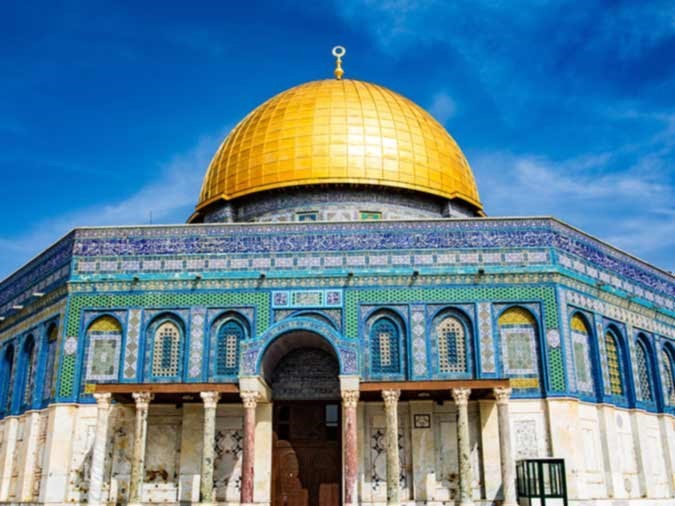## Islamic world in the global strategic orbit ##

Advertisement
A study of developments in the Islamic world may be undertaken from two perspectives – internal and external. Both these components have deeper portents which lead to astounding directions and conclusions. The external component provides a field of activity at the broader level which is contradictory: it is vast and conflicted, as well as cooperative and friendly. This approach factually gets shrunk in time and space amongst nations and the countries of the world.
It may be recognized that this scenario has a special significance for the Muslim world. Firstly, it involves geography which creates situations of convenience as well as inconvenience among the friendly and/or hostile countries. It may be observed that over the centuries, Kings and Monarchs of Empires and big countries have tried this soft weapon of cooperation to forge an attractive spectrum. In some cases they resorted to this position after trying some confrontational methods and techniques. The case of Muslim countries is almost the same. However, with the turn of the century cooperation has become tactful.
Thus, the case of Muslim countries in the global orbit has become twisty in which they try to adjust their interests according to their conveniences. The situation is much different from the times of empires in which the latter took initiatives and maneuvered to expand their vast estates. Now, the empires have dwindled and they have been replaced by countries and the present conflicts are veering around new frictions.
The dissension among Muslim countries is generally based on sectarian differences. In the past, much blood has been shed on account of these differences and in many cases it is still going on. Iraq provides an illustration to the point. However, the global perceptions generally feed the public opinion on prevailing notions and common stories, and this aspect of conflicts usually remains behind curtains.
Stable Muslim countries appear to be scheming to emerge as future powerful conglomerates in the global political chess game with the assistance of mercenaries and terrorist groups. Saudi leaders have been recently asserting that by the way of comparison mercenaries and terrorist groups as one and the same.
Another angle has been added by eying resources available in Muslim countries and to capture them. Muslim countries are gradually becoming conscious of security and stability, and that makes convenient for Muslim countries to form blocks and seek methods and techniques to enrich their countries.
Iran, Turkey and Saudi Arabia are in the same strategic game. Iran is still on its game of expansion and it has not given up in carrying the slogan of Ali Khamenei: ‘La Sharqiya: La Gharbia; Islamia, Islamia’ (Neither East nor West, It is Islam Everywhere-Islam). It is being observed that Turkey is accepting the Iranian revolution and expanding it. Turkey is close to Muslim Brotherhood (Ikhwan-ul- Muslimeen) of Egypt. No wonder that it would provide mercenaries to Ikhwan to dislodge the present military regime and come to power. Turkey is generally involved with Syria, Iraq and Libya.
In case of Syria, Turkey has been alleging that Islamist Terrorist group, Daesh, is involved in violent encounters on its borders. Turkey has threatened that it would use mercenaries to deal with this terrorist group. In Libya, Turkey has openly laid its claim on serene gas reserves in Sriti to which the Libyan Commander of Libyan Armed Forces, General Haftari has issued a serious warning to Turkey. The conflict in Libya makes it clear that it is not Islamic solidarity that works, rather it is material aggrandizement which works. This points out clearly that inner orbit of Muslim World is as much complicated as the outer world. In this century, this match will be played out more vigorously than in the past.
Turkey has established bases in Qatar, Iraq and Somalia. These bases have been established in the names of erstwhile Muslim Commanders who had participated in conquests and annexations in different parts of the world. It is not clear whether these bases had been set up during Ottoman era or during Kamal Ataturk’s time. Again, Qatar has been accused by Yemen to support Houthi militia with money, arms and media to keep the war going.
The five pillars on which the edifice of Islam stands should be enough to ensure the cohesion and solidarity of the Muslim society. The further expansion of the doctrine of universal brotherhood (Salah-e-Kul) as propounded by Prophet Mohammad should be enough to bring about human and universal solidarity. However, that is not the case. Still, the very first doctrine of Monotheism (Tawheed) which is binding on every believer should be enough to provide a binding force. This remained so in the first period of Islamic Empire of Khul-fai- Rashidun but did not remain so with the onset of following empire of Ommayids. The basis have to be traced to sectarianism which was introduced during this period in the battle of Kufa in which Prophet Mohammad’s grandson Imam Hussain was martyred.
Advertisement






